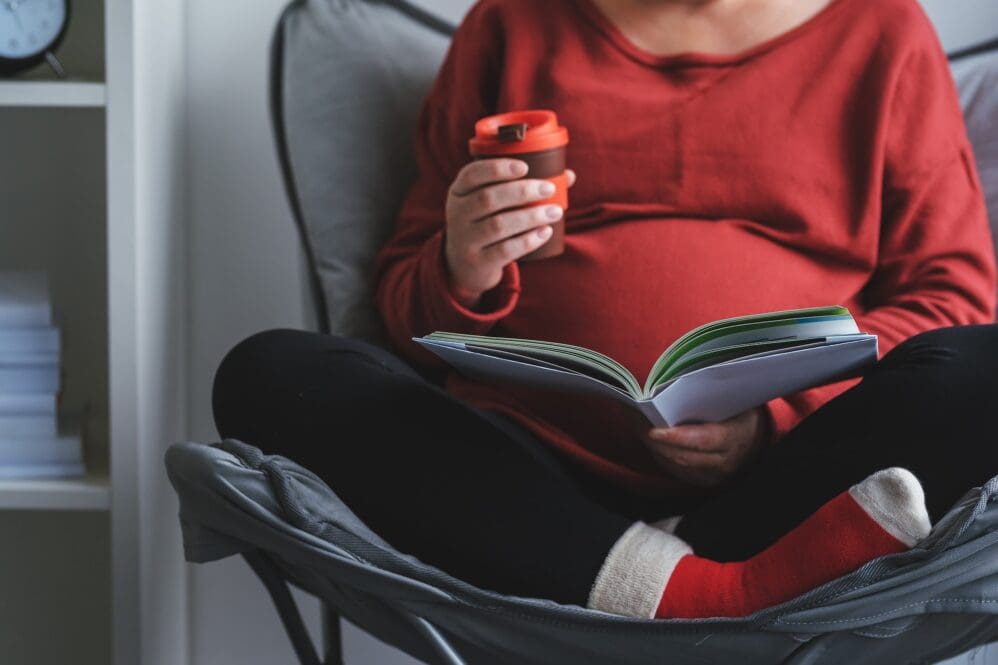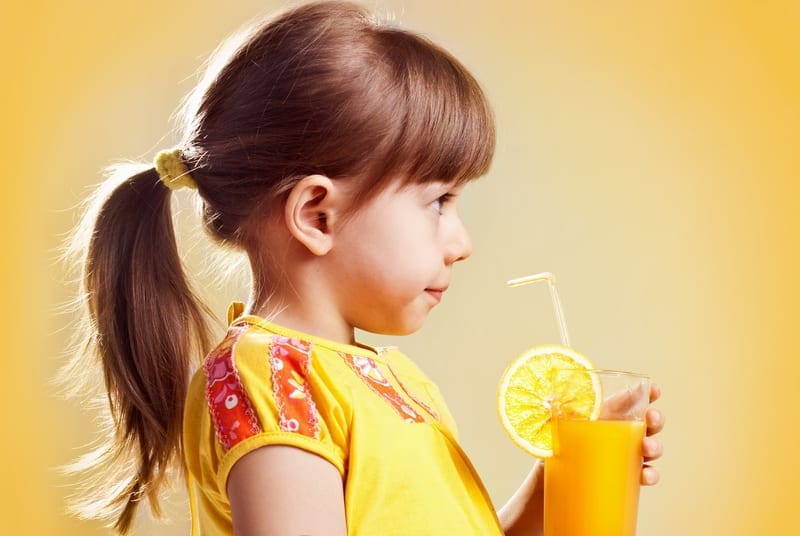When it comes to pregnancy, there is no one-size-fits-all diet. However, there are certain foods that pregnant women should eat (and avoid) for a healthy baby. Some of the best foods for pregnant women include leafy greens, fruits and vegetables, whole grains, lean protein, and dairy. These foods are packed with essential nutrients that are important for both the mother and the developing baby. Leafy greens, for example, are a good source of folic acid, which can help prevent birth defects. There are also some foods that pregnant women should avoid, such as mercury-rich fish, unpasteurized cheese, and raw meat. These foods can pose a risk to both the mother and the baby. Mercury-rich fish, for instance, can accumulate in the body and lead to mercury poisoning. Unpasteurized cheese and raw meat can also contain harmful bacteria that can cause food poisoning.
1. Pregnant women should eat plenty of fruits and vegetables. 2. Pregnant women should eat lean proteins. 3. Pregnant women should eat whole grains. 4. Pregnant women should limit their intake of caffeine. 5. Pregnant women should limit their intake of artificial sweeteners. 6. Pregnant women should limit their intake of processed foods. 7. Pregnant women should avoid fish that contain high levels of mercury.
1. Pregnant women should eat plenty of fruits and vegetables.
Fruit and vegetables are an important part of a pregnant woman’s diet. They are a good source of vitamins and minerals, as well as fibre. Eating plenty of fruit and vegetables can help to prevent constipation, which is common in pregnancy. Fruits and vegetables are also a good source of folic acid. This is a nutrient that pregnant women need in order to help prevent certain birth defects of the baby’s brain and spine. The best way to get enough folic acid is to take a supplement, but eating foods that are rich in folic acid is also important. Some good examples of folic acid-rich foods include leafy green vegetables, legumes, and oranges. In general, pregnant women should aim to eat at least five servings of fruits and vegetables per day. This can be achieved by incorporating them into meals and snacks. For example, adding a handful of berries to breakfast cereal or having a salad with lunch. It is also a good idea to keep some cut-up fruit and vegetables in the fridge for when you get hungry between meals.
2. Pregnant women should eat lean proteins.
One of the best things pregnant women can do for their health and the health of their baby is to eat lean protein. Protein helps ensure a healthy pregnancy by providing the building blocks for the baby’s cells and organs. It also helps to prevent excessive weight gain during pregnancy. There are many sources of lean protein, but some of the best sources are fish, chicken, tofu, legumes, and eggs. Fish is a particularly good source of protein because it is also a good source of omega-3 fatty acids, which are important for the development of the baby’s brain and eyes. When choosing protein sources, it is important to choose those that are low in mercury. Mercury is a toxin that can be harmful to the developing baby. Pregnant women should avoid fish that are high in mercury, such as swordfish, shark, and tilefish. Chicken, tofu, legumes, and eggs are all low in mercury and are good protein sources for pregnant women. In addition to choosing lean protein sources, it is also important to cook protein properly. Pregnant women should avoid eating raw or undercooked meat, poultry, fish, or eggs. These foods can be contaminated with bacteria that can cause illness. Pregnant women should also avoid processed meat, such as deli meat and hot dogs, as these products can also be contaminated with bacteria.
3. Pregnant women should eat whole grains.
Whole grains are an important part of a pregnant woman’s diet. They are a good source of fiber and contain important nutrients like folate, iron, and magnesium. Some studies have also shown that eating whole grains can help reduce the risk of Pre-eclampsia, a condition that can be dangerous for both the mother and the baby. However, not all grains are created equal. Some processed grains, like white bread and white rice, have been stripped of many of their nutrients. Pregnant women should therefore focus on eating whole grains, like whole wheat bread, brown rice, and oats. Whole grains are a great way to start the day. Oatmeal, for example, is not only packed with fiber but also has iron and magnesium. Adding some fruit or nuts to your oatmeal will give you even more nutrients. Whole wheat bread is another good option for breakfast or a snack. Try to choose bread that is made with 100% whole wheat flour and doesn’t have any added sugar. For lunch or dinner, whole grain options include brown rice, quinoa, and farro. These grains can be used in a variety of dishes, from stir-fries to salads. When choosing whole grain products, look for the word “whole” on the package. This will ensure that you are getting a product that contains all the nutrients of the grain. Avoid products that say “enriched” or “bleached,” as these have been processed and may not have the same nutritional value.
4. Pregnant women should limit their intake of caffeine.
Caffeine is a stimulant and can be found in coffee, tea, chocolate and energy drinks. It’s also added to some cold and flu medications. Caffeine can be harmful to your baby if you have more than 200 milligrams (mg) a day. That’s about 12 ounces of brewed coffee or five 12-ounce cans of soda. You might think you can get away with having more caffeine because it’s not a drug, but it can still be harmful. During pregnancy, you should limit your caffeine intake to 200mg per day. This includes all sources of caffeine, such as coffee, tea, energy drinks, and soda. Caffeine can be harmful to your baby if you have more than 200mg a day. That’s about 12 ounces of brewed coffee or five 12-ounce cans of soda. You might think you can get away with having more caffeine because it’s not a drug, but it can still be harmful. Caffeine can cross the placenta and increase your baby’s heart rate. It can also cause a decrease in blood flow to the placenta. Caffeine can also lead to a baby having a low birth weight. So how can you kick the caffeine habit? If you’re a coffee drinker, try switching to decaf. If you’re addicted to soda, try drinking sparkling water or seltzer water instead. And, of course, avoid energy drinks. Herbal teas are a good alternative to regular tea, and they’re caffeine-free.
5. Pregnant women should limit their intake of artificial sweeteners.
Pregnant women should limit their intake of artificial sweeteners since they can be harmful to the baby. Consuming too much artificial sweetener can cause the baby to have a high level of blood sugar, which can lead to diabetes. It is also important to avoid consuming artificial sweeteners during pregnancy because they can cross the placenta and enter the baby’s bloodstream. This can cause the baby to develop jaundice, which is a yellowing of the skin and eyes.
6. Pregnant women should limit their intake of processed foods.
Processed foods are those that have been altered from their natural state, often in order to make them more shelf-stable, easier to cook, or cheaper to produce. Pregnant women should limit their intake of processed foods because they may contain harmful chemicals, preservatives, and additives that can be detrimental to both the mother and the developing fetus. There are a few key reasons why pregnant women should limit their intake of processed foods. First, many processed foods contain harmful chemicals, such as artificial food dyes and flavorings, preservatives, and additives. These chemicals have been linked to a variety of health problems in both pregnant women and their developing fetuses, including birth defects, developmental delays, and cancer. Second, processed foods are often high in sodium, which can lead to high blood pressure and other complications in pregnant women. Finally, processed foods are often low in important nutrients, such as vitamins, minerals, and fiber, which can be essential for a healthy pregnancy. Pregnant women can still enjoy a healthy diet without processed foods. There are plenty of fresh, whole foods that are safe for pregnant women to eat. Fresh fruits and vegetables, lean meats, whole grains, and low-fat dairy products are all nutritious choices for pregnant women. Pregnant women should also make sure to drink plenty of water and avoid sugary drinks, alcohol, and caffeine. By avoiding processed foods and Eating nutritious foods, pregnant women can help support a healthy pregnancy and a healthy baby.
7. Pregnant women should avoid fish that contain high levels of mercury.
Pregnant women are often told to avoid fish because it may contain high levels of mercury. However, not all fish contain high levels of mercury. In fact, some fish are actually good for you and your baby during pregnancy. So, which fish should you avoid? Any fish that is high in mercury should be avoided. This includes shark, swordfish, king mackerel, and tilefish. These fish can contain up to ten times the amount of mercury as other fish. What about tuna? You may have heard that you should avoid tuna during pregnancy, but this is actually only true for canned tuna. Fresh tuna contains much lower levels of mercury. So, if you’re pregnant and you’re craving sushi, you can go ahead and indulge in some fresh tuna rolls. Just be sure to avoid the canned stuff. What about other seafood? Shrimp, crab, and lobster are all low in mercury and are perfectly safe to eat during pregnancy. In fact, they’re actually good for you. Seafood is a great source of protein and omega-3 fatty acids, both of which are essential for a healthy pregnancy. So, there you have it. When it comes to fish and pregnancy, not all fish are created equal. Avoid fish that are high in mercury, such as shark, swordfish, king mackerel, and tilefish. Canned tuna is also best avoided. But feel free to enjoy fresh tuna, shrimp, crab, and lobster. They’re not only safe to eat during pregnancy, but they’re actually good for you.
While some foods are great for pregnant women and their babies, others can be harmful. It’s important to know which foods to eat and avoid during pregnancy. By following this guide, you can help ensure a healthy pregnancy and baby.










